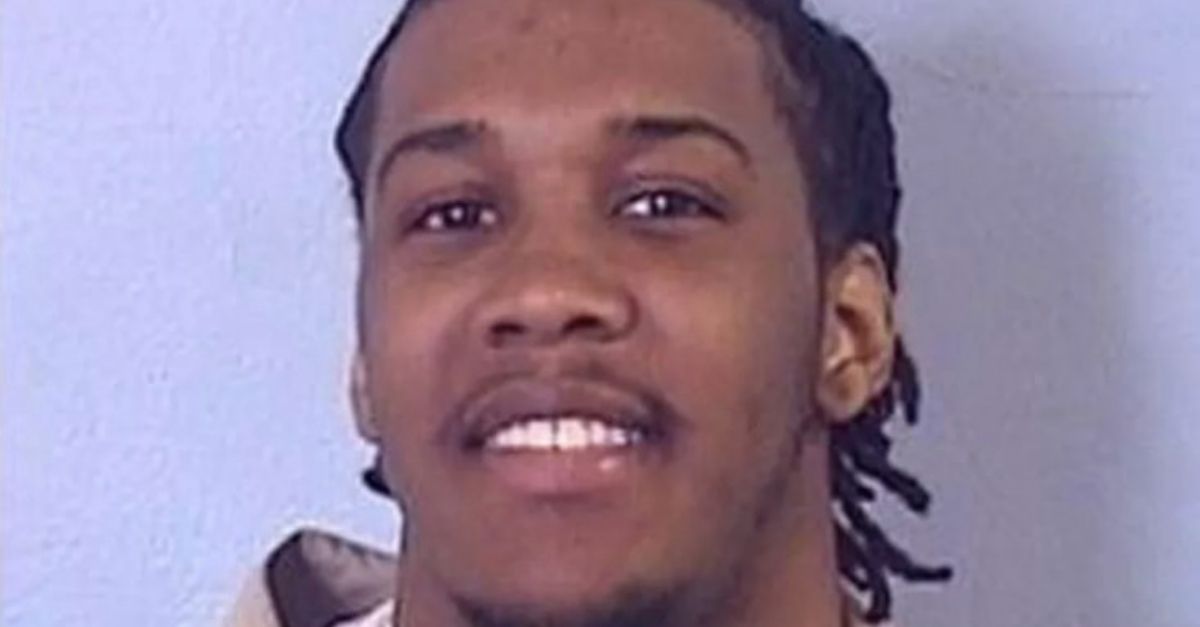An Illinois man is seeking to overturn a 76-year-old murder conviction which he says was wrongfully determined by a judge based upon the testimony of a legally blind man.
The Washington Post reports Darien Harris was sentenced in 2014 following a shooting that occurred at a Chicago gas station in 2011 that left one dead and another critically injured. The then-18-year-old suspect was determined to be the culprit based upon a testimony from a man who failed to divulge that he suffered from a severe vision impairment.
According to court documents, the event in question occurred five years ago on June 7, 2011. At around 8 p.m., brothers Ronald and Rondell Moore pulled up to a BP gas station. Their car had apparently broken down at the pump and they met with an on-site mechanic named Quincy Woulard to resolve their issue. Rondell got out from the driver's seat to purchase some antifreeze from the store while Ronald sat in the back seat.
As shown on video surveillance, a Lexus car pulled up and began shooting at the two men outside of the car, Rondell and Woulard. Rondell, 23, attempted to run from the scene but was shot three times and later died from his wounds. Woulard suffered gunshots to his chest and under his arm but survived the attack.
Chicago Sun-Times reports Dexter Saffold, the supposed eye-witness, pointed to Harris in the courtroom and told Cook County Circuit Judge Nicholas Ford that he watched the high school senior shoot the victims.
However, Harris' mother, Nakesha Harris, told authorities that her son was at home watching a basketball game with his father when the fatal event occurred. He has also been described as a quality student from a stable household; he received his diploma equivalent prior to securing a trial date.
No physical evidence was ever found linking Harris to the crime.
Furthermore, new evidence reveals that Saffold had just received a settlement based upon his eyesight disability three months prior to testifying against Harris in court.
Saffold, who was reportedly riding a motorized scooter from a fast-food restaurant when he stumbled upon the shooting, told authorities he was approximately 18 feet away from the scene when shots rang off. He also told the judge that the shooter ran into him and nearly dropped his gun while fleeing the scene.
According to records obtained by Harris' legal counsel, Saffold had over 16 years in court papers filed against defendants from landlords to colleges in regards to his visual impairment.
The Sun-Times reports the man began receiving disability benefits for his issue nearly a decade prior to the shooting. Purportedly, his records show that he has a field vision of only 10 degrees in each eye;. In contrast, you only need 20 degrees each to be determined legally blind. As a result, he sees 10 degrees less than most who suffer from the condition.
Additionally, Jodi Garvey, the defendant's attorney, says the surveillance video shows a man on a scooter approaching the building moments after the shooting, not during.
CBS Chicago reports that Saffold does not believe his medical history should have any bearing on his testimony.
Another eye witness, 53-year-old Jodie Toney, was working at the gas station at the time and told authorities that Harris was not the shooter
Toney claims in a recent affidavit that the lead detectives on the case, Isaac Lambert and Devinn Jones, attempted to prompt him prior to the line-up to identify Harris as the culprit. He refused to blame the teenager and says he didn't spot the actual shooter among any of the possible suspects in the room.
The eye-witness told reporters that he was not contacted to testify at the 2014 trial by either party of the case.
Garvey and Harris are seeking to have the now 26-year-old's conviction overturned. According to the State’s Attorney’s Office, the integrity unit is currently investigating the case and the new evidence seeking to get Saffold's testimony eradicated from the file. Ultimately, this action would force Harris' case to be resentenced.
The appeal is currently being filed with the Illinois Supreme Court.
